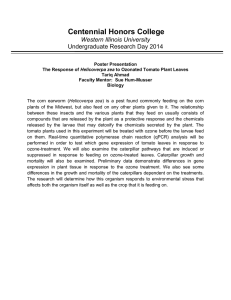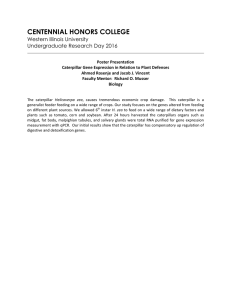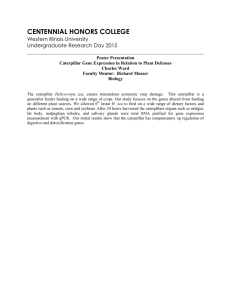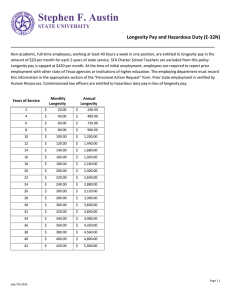Centennial Honors College Western Illinois University Undergraduate Research Day 2014
advertisement
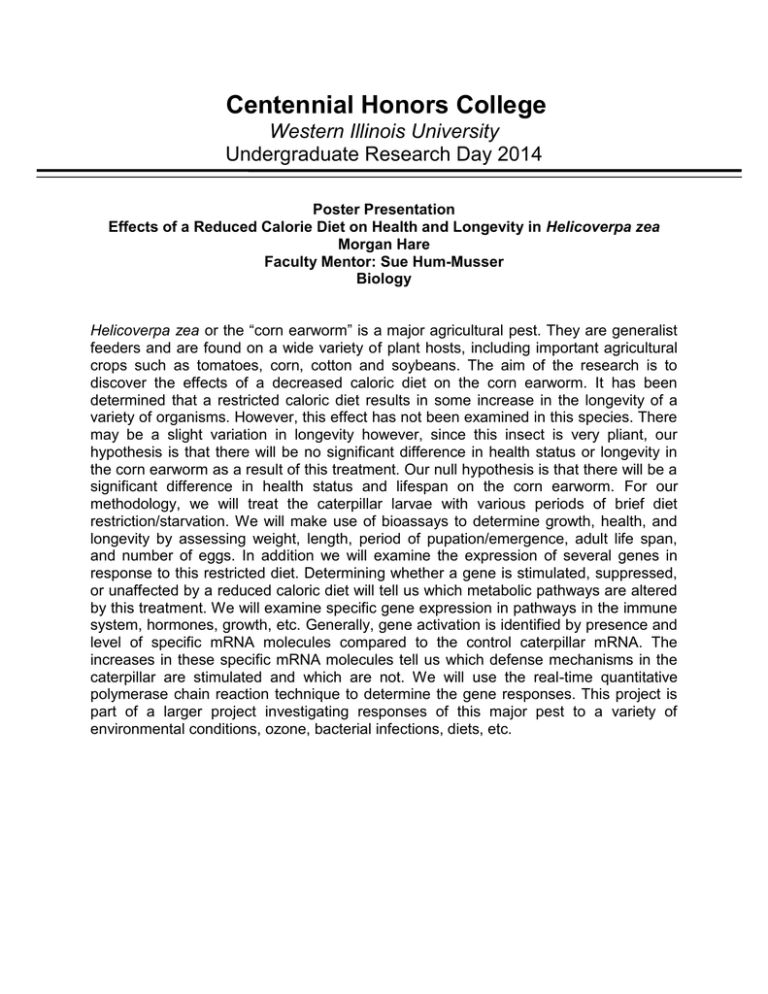
Centennial Honors College Western Illinois University Undergraduate Research Day 2014 Poster Presentation Effects of a Reduced Calorie Diet on Health and Longevity in Helicoverpa zea Morgan Hare Faculty Mentor: Sue Hum-Musser Biology Helicoverpa zea or the “corn earworm” is a major agricultural pest. They are generalist feeders and are found on a wide variety of plant hosts, including important agricultural crops such as tomatoes, corn, cotton and soybeans. The aim of the research is to discover the effects of a decreased caloric diet on the corn earworm. It has been determined that a restricted caloric diet results in some increase in the longevity of a variety of organisms. However, this effect has not been examined in this species. There may be a slight variation in longevity however, since this insect is very pliant, our hypothesis is that there will be no significant difference in health status or longevity in the corn earworm as a result of this treatment. Our null hypothesis is that there will be a significant difference in health status and lifespan on the corn earworm. For our methodology, we will treat the caterpillar larvae with various periods of brief diet restriction/starvation. We will make use of bioassays to determine growth, health, and longevity by assessing weight, length, period of pupation/emergence, adult life span, and number of eggs. In addition we will examine the expression of several genes in response to this restricted diet. Determining whether a gene is stimulated, suppressed, or unaffected by a reduced caloric diet will tell us which metabolic pathways are altered by this treatment. We will examine specific gene expression in pathways in the immune system, hormones, growth, etc. Generally, gene activation is identified by presence and level of specific mRNA molecules compared to the control caterpillar mRNA. The increases in these specific mRNA molecules tell us which defense mechanisms in the caterpillar are stimulated and which are not. We will use the real-time quantitative polymerase chain reaction technique to determine the gene responses. This project is part of a larger project investigating responses of this major pest to a variety of environmental conditions, ozone, bacterial infections, diets, etc.
